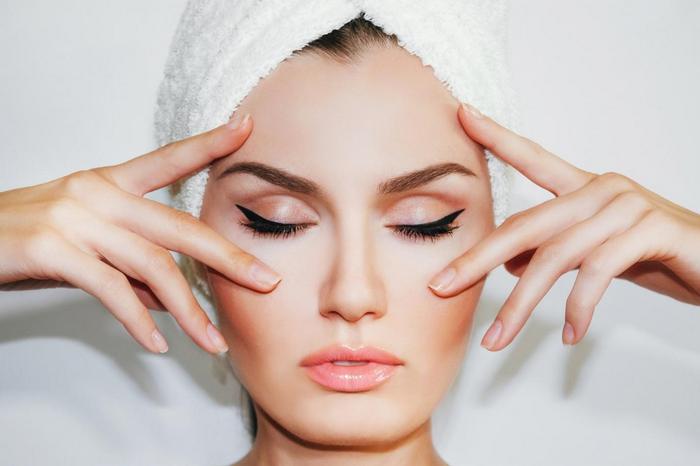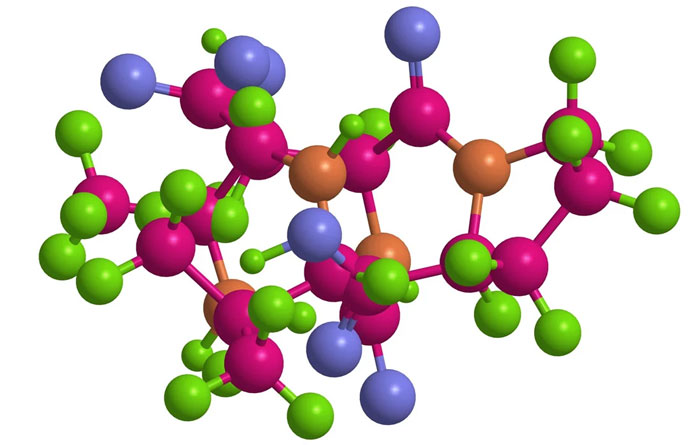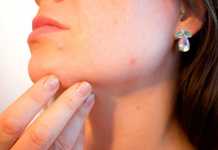Peptides in the composition of various cosmetics promise a miracle of prolonging the youth and beauty of our skin. Is such popularity justified and can they replace the help of a beautician?
What are peptides
Peptides are the “younger brother” of proteins. Both of them consist of chains of amino acids. Peptides contain two to fifty amino acid links, and anything above is considered a protein. In fact, peptides are small fragments of protein molecules. They can be natural or synthetic.
What are they needed for
The most important advantage of peptides is that they have targeted biological activity. Peptides can “order” the cells, which of the actions inherent in them genetically should be launched at the moment. They can influence many processes occurring in the body (including aging).
Figuratively speaking, peptides serve as a code word, recognizing which, the cell responds and begins to act. This “order” can consist of various combinations of the twenty-letter alphabet (according to the number of types of amino acids used by living organisms).
One cell can have a lot of different “orders”, for example, “start dividing”, “absorb glucose,” and even “die”. The content of the “order” is determined by the amino acid sequence (VSVAPG, FVAPFP, etc.).
Peptide cosmetics: an elixir of youth or an advertising trick?

It’s essential to understand that peptides are all different, and some biological properties inherent in one do not necessarily apply to others.
However, suppose we approach the “expectations” of the cell as accurately as possible and introduce a peptide with the required code. In that case, it will be possible to prolong the effect of the process originally incorporated in the cell (for example, to improve cellular metabolism). This principle is used in peptide cosmetics.
Advantages of peptides
The molecular weight of peptides is much less than that of proteins, which means they have greater maneuverability and freedom of action. This property is successfully used in dermatology and cosmetology: it is much easier for small, nimble peptides to penetrate the skin than for their clumsy “big brothers.”
It is important that peptides act in the deepest layers of the epidermis. Thus, peptide cosmetics allows you to achieve a more pronounced and long-term result. Another important property is that it has a long-term effect: if the peptide gave the right command, the cell recognized it, and the biological process was launched, the action can continue for some time, even in the absence of the peptide itself.
Finally, a significant plus of peptides is that it is very difficult to “overdo” them. Every second, thousands of peptides are broken down to single amino acids (from which the cells then build new proteins or peptides or are simply removed from the body), so they do not accumulate and practically cannot have a toxic effect. For the same reason, skin care using peptide cosmetics should be regular.
Peptide cosmetics: an elixir of youth or an advertising trick?
Efficiency
Peptides have different efficiencies depending on their constituent amino acids and the sequence in which each individual chain is assembled. Here are the main functions that peptides can perform.
They stimulate the production of collagen. The balance of collagen is very important for healthy and beautiful skin because its level decreases with age. Peptides with the ability to penetrate deeply into skin cells trigger the process of collagen synthesis or reproduction of fibroblasts (connective tissue cells), which restores firmness and elasticity to the skin.
They smooth out wrinkles. The so-called matriline peptides act according to the principle of Botox – they block muscle receptors and reduce the activity of mimic muscles. Due to muscle relaxation, small mimic wrinkles are smoothed out, and the visibility of deeper ones is reduced (it is the “Botox-like” type of peptide that is often added to creams and eye balms).
They “transport” the necessary trace elements. Some peptides transfer the active substances that are part of cosmetics into the deep layers of the skin.

Peptides regulate the activity of the sebaceous glands – such peptides are used to treat acne and fight post-acne.
They provide cell regeneration. Some classes of peptides can accelerate healing processes, while others, on the contrary, suppress inflammation.
The composition of cosmetics usually includes several or a whole complex of peptides with different functions.
Peptide cosmetics: an elixir of youth or an advertising trick?
It is possible to use peptide preparations in the form of tablets as a biologically active food supplement, providing both a convenient application and a tangible effect.
Truth or a myth?
The potential of peptides is recognized worldwide in cosmetology and medicine – the annual sales of peptide drugs are measured in tens of billions of dollars. For the vast majority of people, peptide products work great and begin to act almost immediately, but for some, they turn out to be useless.
The reason for this is not the composition of the amino acid chain, but indirect factors: low permeability of the skin, the body’s ability to recognize and break down certain peptides before they have time to reach their “targets” or “orders” specially written in the genetic code.
Another reason why peptides may “not work” is addiction. The human body is a very complex system consisting of a large number of different biological mechanisms and processes. It knows how to adapt to almost any external influence. Over time, the effect of peptides becomes less pronounced. Therefore, with prolonged use of many medicinal or cosmetic products, the severity of the effect of peptides decreases or disappears completely, even with increasing doses.











